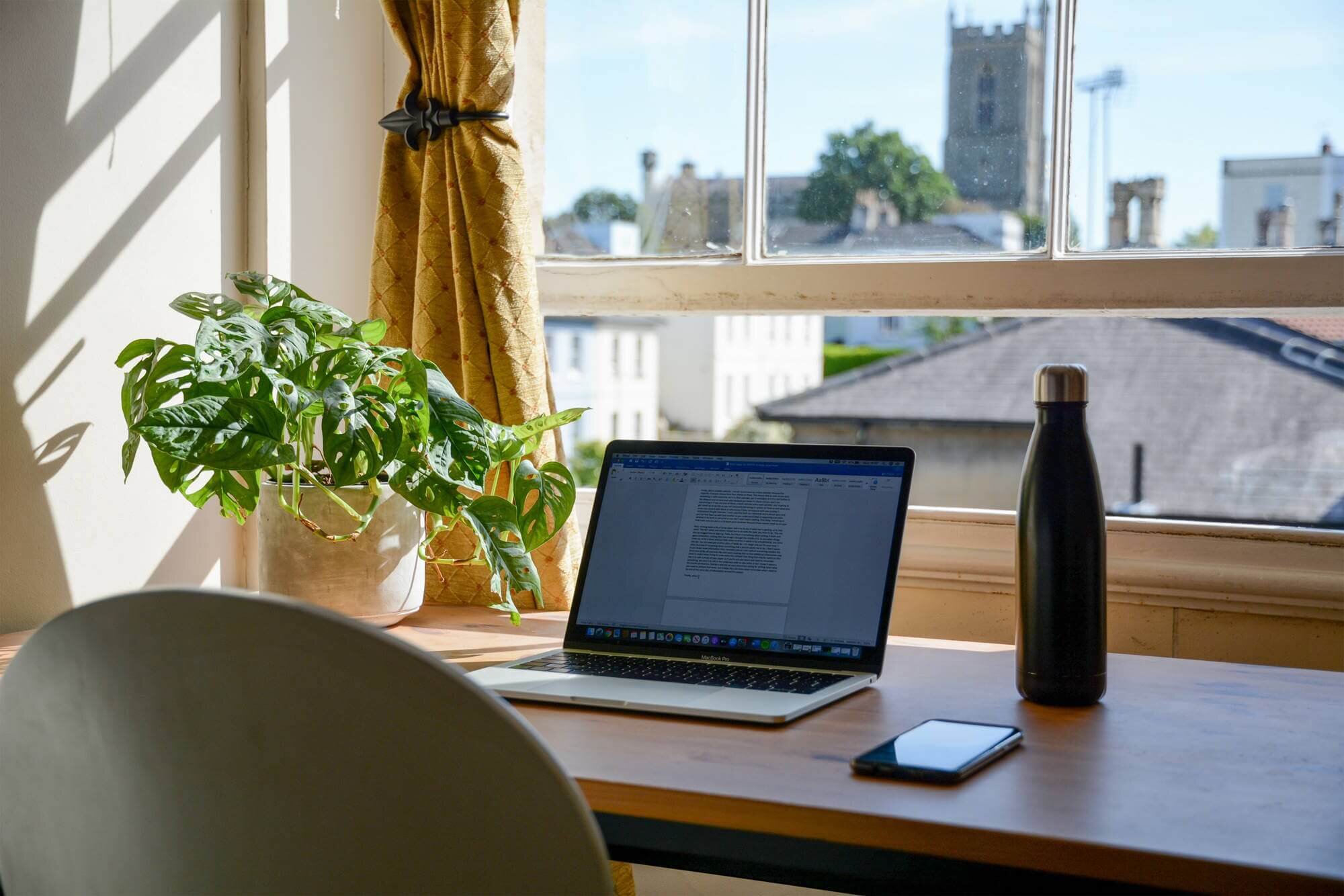What is Supplemental Learning?

Boost Learning Potential: What is Supplemental Learning?
The world of education is evolving. In this landscape of rapid change, we need to ensure that our children are not merely keeping pace but are equipped to seize the opportunities that come their way. Supplemental learning complements traditional classroom instruction, fostering a deeper understanding and independent learning skills. This approach caters to all students, be it those who need additional assistance or those who wish to learn beyond the classroom curriculum.
Key Takeaways
- Supplemental learning is an educational approach that complements traditional classroom instruction.
- It consists of various components such as online resources, tutoring and mentoring, and extracurricular activities to enable students to explore new concepts.
- Supplemental learning provides numerous benefits including improved grades, increased confidence in learning skills development, creativity enhancement and critical thinking improvement.
Defining Supplemental Learning
Supplemental learning is an educational approach that complements traditional classroom instruction with additional resources and activities. Its primary goal is to provide additional learning opportunities to enhance students’ educational experiences. It encompasses a range of forms such as one-on-one tutoring, online resources, or learning clubs. These offer additional avenues for growth and education outside the traditional classroom setting, allowing students to gain a more profound grasp of the subject matter and improve their educational results.
Incorporating diverse instructional strategies, supplemental learning programs foster a dynamic educational environment. These programs utilize collaborative activities, hands-on learning experiences, and the integration of interactive technologies. The result is a learning process that leverages resources beyond the classroom, nurturing a love for learning while challenging students to achieve their full potential.
Components of Supplemental Learning
Online resources are a key component of supplemental learning. These resources enrich a child’s education and offer a cost-effective and adaptable platform for exploring new concepts, enabling progress tracking, and reinforcing fundamental knowledge.
Similarly, tutoring and mentoring provide personalized guidance and support, helping students to grasp classroom concepts and meet their unique learning needs. Likewise, extracurricular activities provide students with opportunities to apply their knowledge in diverse settings, participate in social interaction, and cultivate additional skills, thereby aiding in the development of a well-rounded education.
The Role of Supplemental Learning in Education
Supplemental learning is instrumental in bridging learning gaps. It offers supplementary resources and activities to facilitate the realization of educational potential for all students, leading to a deeper understanding of the subject matter. For advanced students, supplemental learning offers targeted enrichment and interventions that specifically address their advanced learning needs. Some examples of supplemental learning include:
- Online coding courses, which enable students to delve deeper into subjects of interest
- Tutoring sessions, which provide one-on-one support and guidance
- Educational apps and games, which make learning fun and interactive
- Workshops and seminars, which offer hands-on learning experiences
By incorporating supplemental learning into their education, students can enhance their student learning experience and skills in a variety of ways.
Moreover, supplemental learning has a positive impact on the development of independent learning skills. It provides students with the opportunity to learn at their own pace, explore their interests, and cultivate critical thinking abilities in non-traditional educational environments.
Benefits of Supplemental Learning for Kids
Children can reap numerous benefits from supplemental learning. It reinforces core concepts learned through classroom learning, leading to improved grades, increased confidence, and the development of a positive attitude towards learning. Supplemental learning activities, such as online platforms, have the capacity to impart real-world technologies in an engaging and interactive setting, fostering self-directed learning and problem-solving abilities.
Moreover, extracurricular activities, such as sports and art classes, broaden children’s experiences. Tailored programs provide structured challenges that promote creativity and critical thinking through engaging and thought-provoking tasks. These activities are designed to engage students in the learning process, thereby nurturing creativity and critical thinking.
Improving Academic Performance
Academic performance can be greatly improved through supplemental learning. It reinforces fundamental concepts and offers extra practice opportunities, along with providing individualized instruction to cater to each student’s unique needs. Parents can aid in this enhancement by offering supplementary practice at home. This may include collaborating on problems, working on additional practice problems from a workbook, or utilizing online resources such as online tutoring services.
Among the available online resources, platforms like Khan Academy offer assistance to students who encounter difficulties with specific concepts in their classes or seek to expand their knowledge in a particular subject. These types of resources make learning enjoyable, thereby reinforcing fundamental concepts.
Developing Independent Learning Skills
Cultivating independent learning skills in children is of paramount importance. It equips them with the ability to learn, enhances academic achievement, heightens motivation and self-assurance, nurtures creativity and intellectual inquisitiveness, and promotes a sense of ownership and accountability in learning. Supplemental learning activities foster these skills by providing problem-solving strategies and developing metacognitive abilities that enable students to set goals, monitor progress, and evaluate their academic development.
Supplemental learning contributes to the development of self-directed learning by empowering students to take control over their learning process, encouraging the development of techniques to focus and increase productivity, and allowing them to explore their interests. It involves setting clear learning expectations and criteria, and guiding students to define their own learning objectives and strategies.
Nurturing Creativity and Critical Thinking
By offering diverse learning experiences and stimulating challenges, supplemental learning significantly contributes to developing students’ creativity and critical thinking. Educational games, for instance, target specific skills such as math, reading, or logic, thereby assisting children in learning these concepts in a stimulating and pleasurable manner.
For example, engaging in coding and robotics is advantageous for children as it enables them to comprehend the functioning and control of machines, while also fostering essential skills for the future, such as enhancing their understanding of math and science.
Types of Supplemental Learning Activities
Supplemental learning activities encompass a variety of forms such as:
- Online educational resources, which encompass platforms such as Khan Academy, Duolingo, BrainPop Jr., and McGraw-Hill’s Supplemental programs, offering a wealth of learning opportunities that are accessible and flexible as part of a supplemental learning program.
- Tutoring and mentoring programs, which provide one-on-one support and guidance to students.
- Extracurricular clubs and groups, which allow students to explore their interests and develop new skills outside of the traditional classroom setting.
These supplemental learning activities can enhance a student’s educational experience and provide additional support and enrichment, addressing the supplemental learning challenge they may face.
Engaging in extracurricular clubs and groups as supplementary learning activities provides numerous advantages, such as:
- Skill enhancement
- Improvement of student achievement
- Enjoyable and valuable learning experiences
Meanwhile, tutoring and mentoring programs are essential elements of supplemental learning, offering personalized guidance and assistance to cater to individual learning needs and objectives.
Online Educational Resources
Online educational resources offer an array of learning opportunities, including interactive courses, video tutorials, and practice exercises. They afford flexibility, enabling students to learn at their own pace, reinforce concepts, and delve into supplementary subjects of interest. Coding educational platforms are accessible to students, including Scratch for beginners, Code.org for a wide range of classes, and Blockly for more intermediate to advanced learners. Each platform offers unique interfaces and projects aimed at developing programming skills.
Tutoring and Mentoring Programs
Within the scope of supplemental learning, tutoring and mentoring programs provide personalized guidance and support to meet unique learning needs and goals. They play crucial roles in:
- Facilitating academic success
- Providing personalized attention and assistance
- Ensuring fair access to education
- Improving learning outcomes across various grade levels
Various types of tutoring and mentoring programs are available, such as:
- One-on-one tutoring
- Peer mentoring
- Supplemental Instruction (SI)
- Embedded tutoring
These programs are designed to address a range of learning needs and objectives and can offer advantages to a diverse range of age groups, encompassing young students, teenagers, high schoolers, and college students.
Extracurricular Clubs and Groups
Extracurricular clubs and groups promote collaboration, peer support, and social interaction, thereby enriching learning experiences. Participating in learning clubs and study groups offers the benefits of collaboration, peer support, and a deeper comprehension of the material by facilitating the exchange of knowledge, sharing of ideas, and collaborative problem-solving.
Examples of extracurricular clubs and groups that contribute to the enhancement of learning include:
- Student Government
- Debate Club
- Entrepreneurs Club
- Model UN
- Junior Achievement
- Youth Board
- Leadership Workshops
- Community service organizations
Engaging in group projects and activities enables students to enhance their communication, idea-sharing, and teamwork abilities. This contributes to the development of peer relationships, social skills, and interpersonal competencies.
Implementing Supplemental Learning at Home
To implement supplemental learning at home, one needs to set up a routine, choose relevant resources, and foster a love for learning. The essential components for establishing an effective learning routine at home include adhering to a schedule, creating a conducive home learning environment, organizing school supplies, and maintaining a sense of control over the learning space.
When selecting supplemental learning resources for children at home, it is important to consider factors such as:
- Developmental appropriateness
- Alignment with educational standards
- Engagement level of the resources
- Seeking out reviews and recommendations
- Assessing the specific needs of the child
Parents can cultivate a passion for learning at home by:
- Offering supplementary educational materials
- Supporting with homework
- Introducing extra stimulating activities tailored to the child’s interests
- Participating in discussions about their day and the subjects they are learning to sustain their motivation and commitment to their education.
Establishing a Routine
A predictable daily routine is vital for supplemental learning in children as it reinforces their school learning and gives them a sense of control over their environment. Furthermore, a consistent routine can have a positive impact on a child’s academic performance and contribute to their overall learning development.
The essential elements of a supplementary learning regimen for children encompass establishing strong relationships, engaging in consistent practice, implementing a structured schedule, defining clear goals, diversifying activities, ensuring a nurturing environment, and involving parents in the learning process. Parents can establish a structured routine for supplemental learning at home by implementing a consistent daily schedule that includes dedicated learning time, integrating real-life experiences, allocating time for outdoor activities, creating a conducive study environment, and defining specific learning objectives to direct the routine.
Selecting Appropriate Resources
Selection of resources for supplemental learning should be based on factors like:
- Content relevance to the child’s current learning subjects and interests
- Presentation clarity
- Information accuracy
- Resource variety
- Age group suitability
- Potential to supplement rather than replace traditional teaching methods.
Encouraging a Love for Learning
Encouraging a positive attitude towards education is a way supplemental activities can instill a love for learning. They achieve this by:
- Encouraging active participation
- Developing qualities such as empathy and respect
- Promoting autonomy
- Integrating positive psychology principles
- Creating a sense of belonging through extracurricular activities
Successful methods for cultivating a passion for learning in children include:
- Implementing rewarding learning experiences
- Engaging in conversations about learning
- Regularly reading to them
- Creating an environment rich in books to stimulate curiosity and a desire for exploration
Enjoyable supplemental learning activities that promote a passion for learning may include:
- Participating in after-school activities
- Offering enrichment activities or online courses for growth opportunities
- Exploring arts and crafts projects
- Utilizing interactive tools and games for subjects such as math and geometry
Supporting Advanced Students with Supplemental Learning
Supplemental learning support for advanced students entails:
- Providing them with enriching learning experiences
- Enabling them to delve deeper into subjects
- Participating in critical thinking and problem-solving tasks
- Pursuing their interests and passions
- Customizing to the individual abilities and learning preferences of advanced students
- Promoting independent learning and self-directed exploration
- Motivating them to take responsibility for their education
- Aiming for academic achievement
This support helps advanced students to excel and reach their full potential.
Challenging Advanced Learners
Educators can engage advanced learners by using strategies like:
- Asking higher-level questions
- Administering pre-tests among volunteers
- Tailoring learning experiences to student interests
- Grouping based on achievement levels
- Offering enrichment clubs, mentorships, and learning options.
Supplemental learning offers advanced students enriching and interactive activities that extend beyond standard curricula, assisting them in cultivating independent problem-solving skills, gaining proficiency in information technology, and advancing their learning at an accelerated or more individualized pace.
Enrichment Programs and Activities
Enrichment programs for advanced students encompass a range of activities including:
- After-school classes
- Homeschool classes
- Summer programs
After-school activities and programs can benefit advanced students in the following ways:
- Enabling them to advance at their individual speed
- Giving them the chance to delve into their interests and pursue more advanced subjects
- Promoting a sense of camaraderie with similarly inclined peers
- Providing tailored teaching
- Improving their abilities in critical thinking, problem-solving, and creativity
Summer camps offer:
- A conducive environment for peer collaboration
- New and challenging learning opportunities, especially through hands-on experiences
- Specialized enrichment programs tailored to their advanced learning needs
Addressing Learning Difficulties Through Supplemental Learning
To address learning difficulties using supplemental learning, one must:
- Identify learning gaps
- Customize instruction to meet individual needs
- Offer additional support
- Provide small group or personalized instruction
- Create a less stressful learning environment for children experiencing academic challenges
Many children often experience learning difficulties such as dyslexia, dyscalculia, dysgraphia, and attention deficit hyperactivity disorder (ADHD). Supplemental learning activities provide assistance to children with learning difficulties by providing additional practice, alternative teaching methods, and interactive experiences that cater to different learning styles.
Identifying Learning Gaps
Learning gaps can significantly impede a student’s overall academic achievement due to a deficiency in foundational knowledge. This, in turn, can impede their capacity to grasp new material, excel in assessments, and maintain pace with their peers, ultimately resulting in lower grades and overall performance.
The essential elements of a supplementary learning regimen for children encompass:
- Establishing strong relationships
- Engaging in consistent practice
- Implementing a structured schedule
- Defining clear goals
- Diversifying activities
- Ensuring a nurturing environment
- Involving parents in the learning process
Parents can establish a structured routine for supplemental learning at home by implementing a consistent daily schedule that includes:
- Dedicated learning time
- Integrating real-life experiences
- Allocating time for outdoor activities
- Creating a conducive study environment
- Defining specific learning objectives to direct the routine
Tailoring Instruction to Individual Needs
Adapting teaching methods and approaches to suit each student’s specific learning needs and preferences is key to tailoring instruction to individual needs. This includes:
- Recognizing different strengths, weaknesses, and learning styles among students
- Adjusting instruction to maximize their learning potential
- Ensuring that every student receives the necessary support and resources for their success
To customize instruction to meet individual needs in supplemental learning, educators can deliver tailored instruction through multiple channels, adopt a personalized approach, ask higher-level questions, incorporate frequent assessments, and create a welcoming learning environment. These technologies have the capacity to transform education by individualizing the learning process for each learner. Adaptive learning employs data-driven instruction to adapt and customize learning experiences to fulfill the specific requirements of each student, thereby enhancing their learning capabilities.
Is It Worth It?
Supplemental learning is a comprehensive approach that complements traditional classroom instruction with additional resources and activities. It fosters a deeper understanding of subjects, nurtures independent learning, and promotes creativity and critical thinking. It has the potential to enhance academic performance, cater to the unique needs of advanced students, and address learning difficulties.
Regardless of the initial learning capabilities of the child, supplemental learning offers a pathway to success. It provides an enriched learning experience that goes beyond the contents of traditional classrooms, thereby fostering lifelong learners. Let’s harness the power of supplemental learning to ensure that our children are not just keeping pace, but setting the pace.
Frequently Asked Questions
What is supplementary learning?
Supplementary education involves programs outside the scope of basic education, designed to improve and reinforce a student’s skillset.
What is an example of supplemental learning?
Supplemental learning is the use of additional materials to complement the main resources of a course, such as books and eBooks, articles, guides, and tutorials.
How does supplemental learning support advanced students?
Supplemental learning enables advanced students to explore their interests and passions, develop critical thinking skills, and take responsibility for their education. It encourages them to pursue advanced and enriched learning experiences, motivating them to achieve academically.
Can supplemental learning help address learning difficulties?
Supplemental learning can significantly help in addressing learning difficulties, providing additional practice, alternative teaching methods and interactive experiences tailored to different learning styles. This can lead to better engagement, improved retention and increased self-confidence, all of which are key to helping children overcome their learning challenges.
Liked that post? Here's more from the journal...
Learn how to find the right tutor, who can transform learning roadblocks into stepping stones, for your child.
PEDAGOGY
Discover what supplemental learning is and its power to promote deeper understanding and independent skills in youth.
FOR FAMILIES
Explore 5 teaching strategies that create a dynamic learning environment and boost student engagement in the classroom.
FOR EDUCATORS


